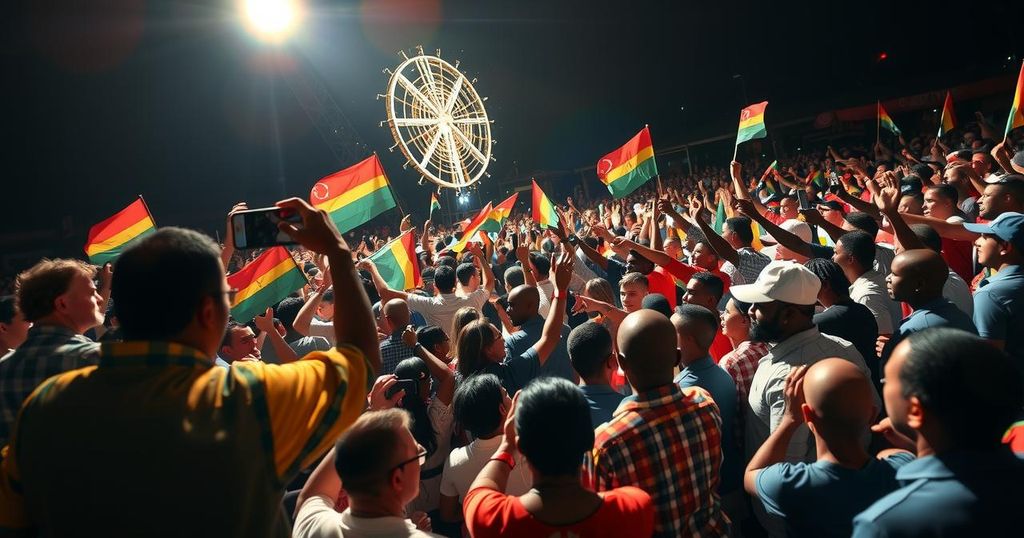Navin Ramgoolam, leader of the Alliance of Change, won a landslide victory in Mauritius’s parliamentary elections, securing 62.6% of the votes and 60 out of 62 seats. Former Prime Minister Pravind Jugnauth conceded defeat amid economic criticisms and a wiretapping scandal. Ramgoolam plans to dismantle surveillance tactics and address the cost of living crisis as he embarks on his fourth term in office.
In a significant political shift, the opposition leader, Navin Ramgoolam, has secured a remarkable victory in Mauritius’s parliamentary elections, solidifying his status as a seasoned political figure in the nation. According to the Office of the Electoral Commissioner, Ramgoolam’s Alliance of Change (ADC) coalition garnered an impressive 62.6 percent of the votes, earning him a fourth term as prime minister. The ADC achieved a remarkable feat by winning 60 out of the 62 available seats in the National Assembly, as reported by the Mauritius Broadcasting Corporation. Amidst jubilant celebrations from supporters, the 77-year-old Ramgoolam expressed his gratitude, declaring, “The court of the people has delivered its verdict and a new Mauritius awakes.” Having previously served as prime minister on two occasions—from 1995 to 2000 and from 2005 to 2014—his return marks a significant moment in Mauritian politics. The elections, the twelfth since the nation gained independence in 1968, witnessed over one million registered voters participating, showcasing the importance of public engagement in this electoral process. The recent election was marked not only by Ramgoolam’s significant victory but also by an ongoing wiretapping scandal that raised concerns about political integrity. Prime Minister Pravind Jugnauth, who acknowledged the defeat of his Lepep alliance, emphasized, “The people have chosen another team to lead the country.” He had held office since 2017 and faced considerable criticism during the campaign, primarily due to economic challenges and the controversial wiretapping allegations. Post-election, Ramgoolam has pledged to dismantle the existing surveillance structures to restore citizens’ freedoms. His campaign highlighted key issues affecting Mauritians, such as rising living costs, proposing a fund to assist families in distress, improved public transport, as well as initiatives against corruption and for environmental sustainability. As he embarks on this new political journey, the focus will likely remain on addressing the pressing economic concerns facing the nation.
The political landscape of Mauritius has seen fluctuating dynamics since its independence from British colonial rule in 1968. The recent parliamentary elections were crucial not only for the continuity of governance but also for the addressing of pressing issues concerning the Mauritian populace. Issues such as the rising cost of living and allegations surrounding political surveillance have dominated public discourse. Navin Ramgoolam, representing the Alliance of Change, has a rich political heritage and a history of leadership in the nation, making his victory significant in the context of Mauritian politics.
In summary, Navin Ramgoolam’s overwhelming victory in the recent elections signals a transformative moment for Mauritius. His alliance not only secured the majority of seats but also resonated with voters’ concerns about economic hardships and governance integrity. As he embarks on his fourth term, the expectations for substantive reforms and transparency in government practices will be pivotal in shaping the future trajectory of Mauritius. The political landscape will now be closely watched as Ramgoolam’s administration addresses the challenges that lie ahead.
Original Source: www.aljazeera.com






